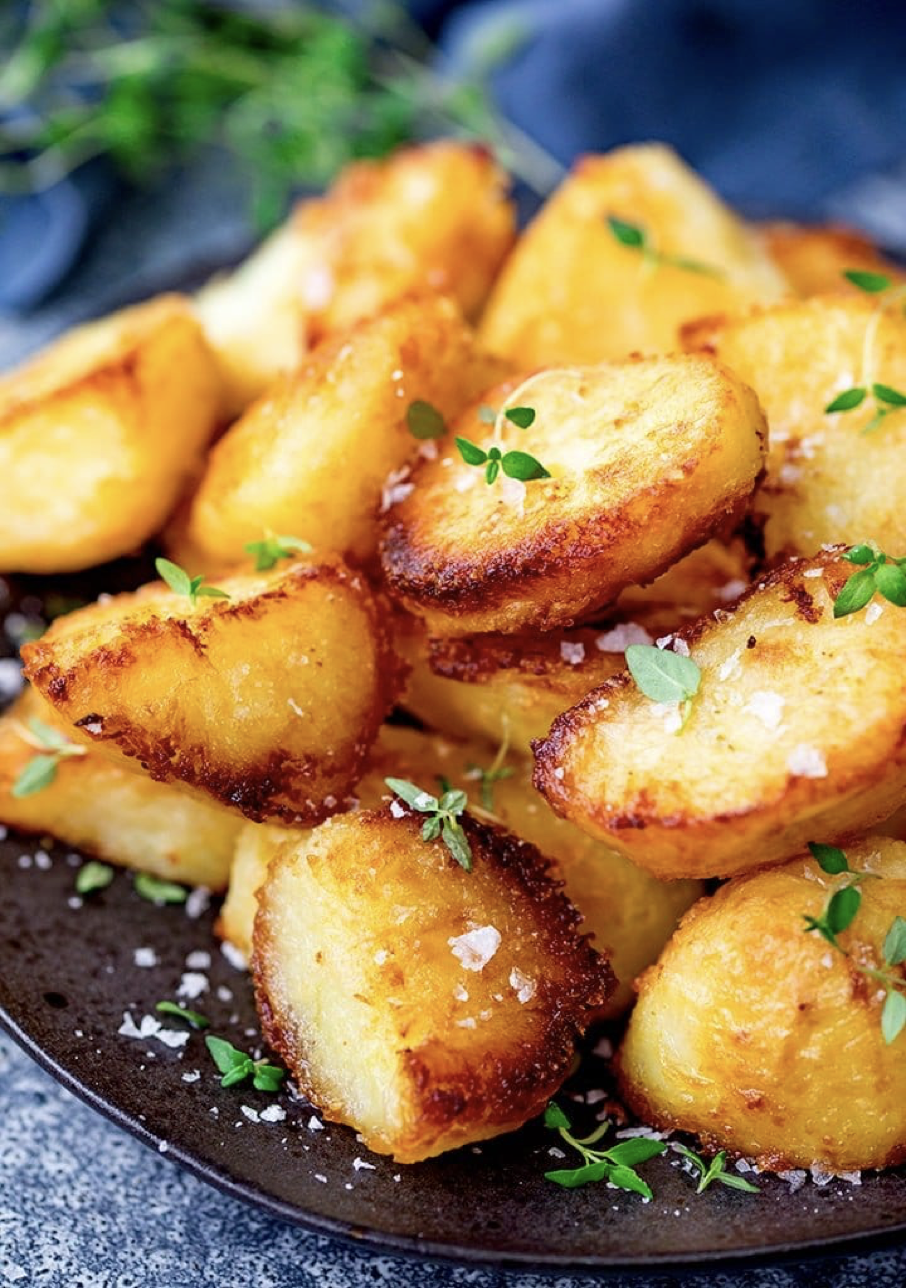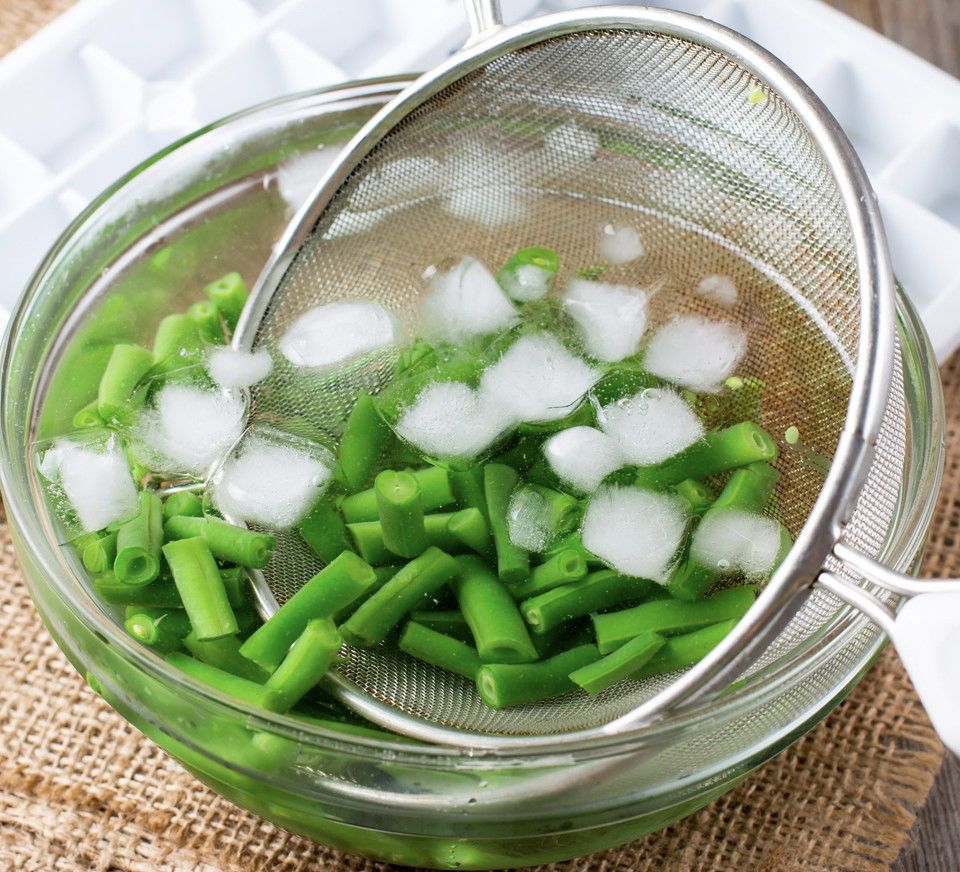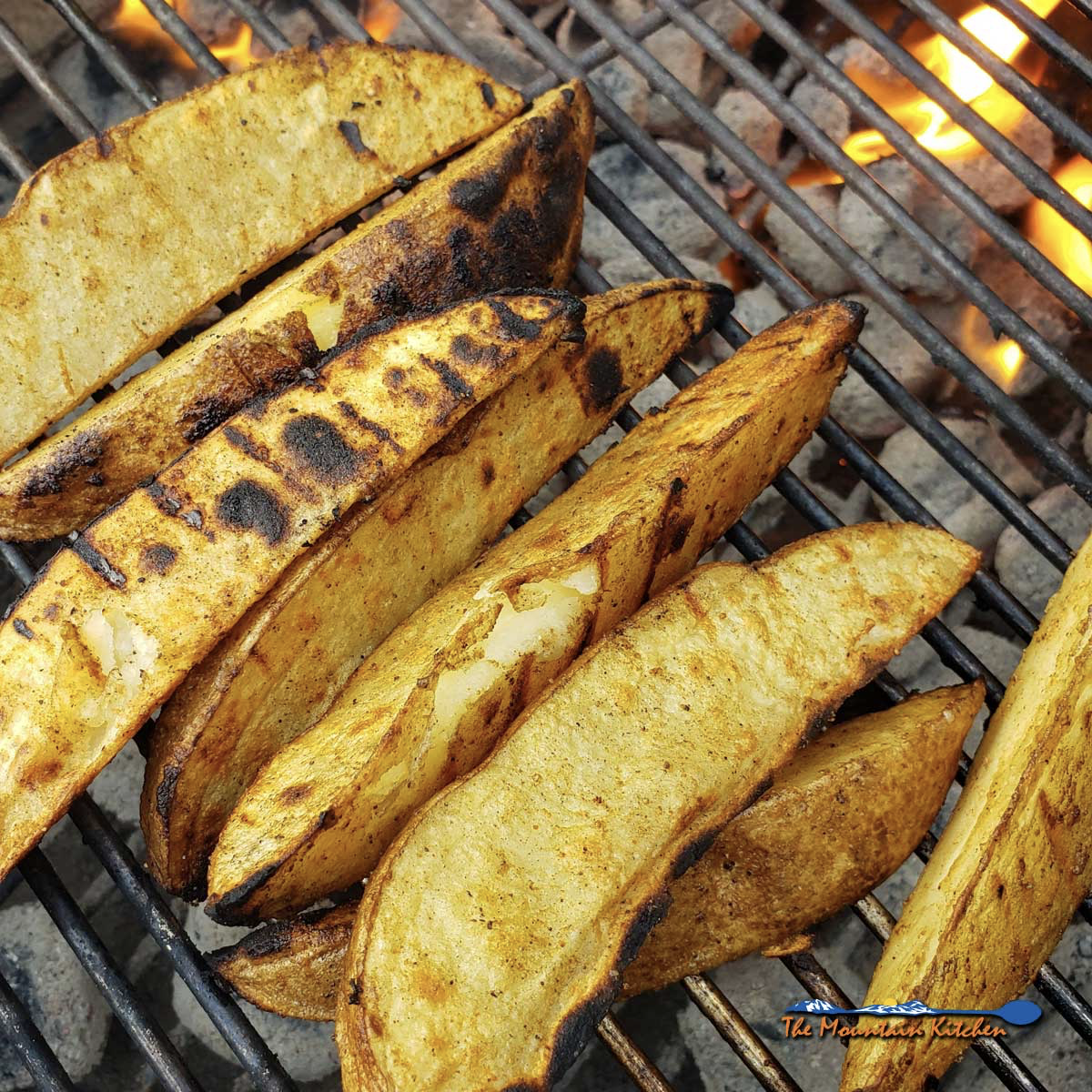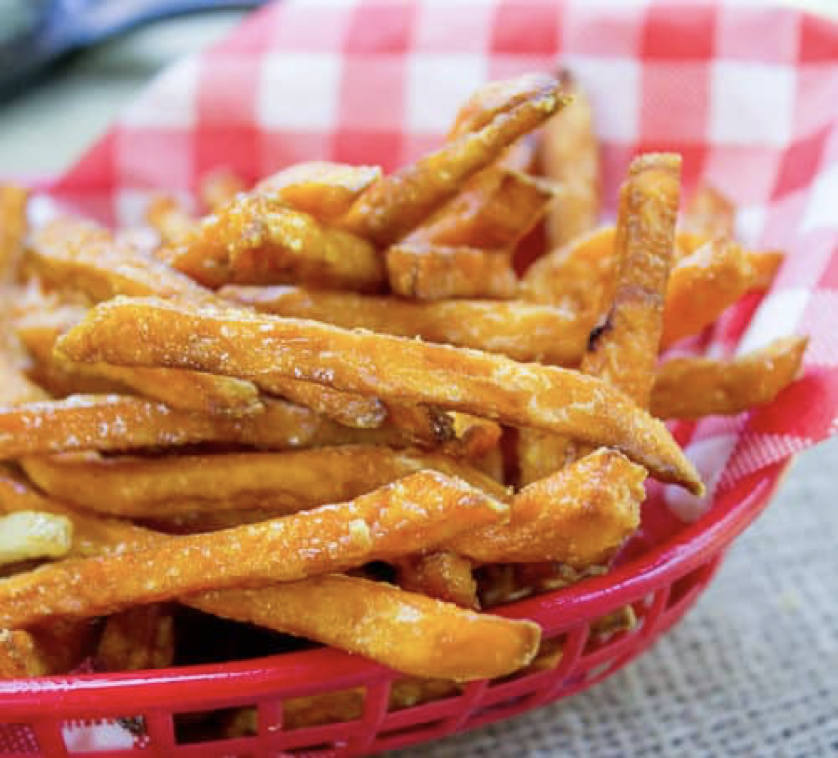How to Parboil Potatoes and Why Bother?
Did you know that there’s a little secret to successful potato cooking, no matter what recipe you’re using?

It’s PARBOILING. From roasted baby potatoes to tender scalloped potatoes, and every other potato dish in between, parboiling is a vital part of the recipe process (even if your recipe doesn’t state this).
What is parboiling? Parboiling is a blended word that combines "partial" and "boiling. The term is precise, because that’s what parboiling is: partially boiling something.
The goal is to cook your potatoes, but NOT ALL THE WAY. The technique paves the way for instance, for the above-mentioned roasted potatoes to achieve a crispy crust on the outside while remaining soft on the inside.
Parboiling isn’t blanching. When blanching, you plunge your food into boiling water and leave it there for only a couple minutes, maximum, then you remove the food and plunge it into an ice-water bath. Blanching isn’t meant to be a cooking method. It’s used to stop enzyme actions which otherwise cause loss of flavor, color and texture.

In addition, blanching removes some surface dirt and microorganisms, brightens color, and helps slow vitamin losses. It also wilts greens and softens some vegetables (broccoli, asparagus) and makes them easier to pack. Its most common use is to prepare foods for freezing.
Parboiling, on the other hand, takes a little more time and is intended to actually cook the food a to a certain extent. It’s almost always combined with a second cooking method, since you're only partially cooking your potatoes! Whether you want a crispy grilled potato wedge or tender sliced potato, parboiling is the perfect way to prep your potato for the outcome you want.

And it’s easy. Obviously whole potatoes will take longer to parboil than cubed potatoes. And that’s the toughest part of parboiling…timing. With a little practice, though, you can figure it out. Start by placing your potatoes in your pot and then covering them with clean, cold water.
Throw in a pinch of kosher salt, cover the pot with a lid, and then turn the stove on high heat.
Once the water starts to boil, reduce the heat slightly to keep it from boiling over (or just remove the lid), and continue boiling for about 5-10 minutes (but as mentioned above, shorten the time if cooking diced or sliced potatoes). Test the potatoes with a fork or the tip of a sharp knife--if it goes in with slight resistance, you’re done.

Remove the boiled potatoes from the heat, drain your pot of the excess water, and let them cool a little before moving to your next step, no matter what that next step is. And voila, your potatoes are now parboiled! They’ll keep for up to two days in the fridge before you carry on with your potato recipe.
With the method down, the fun begins and the success in imminent. Want perfect French fries? You’ll have them, because your parboiling makes them crunchier. Parboiling is the best way to handle a spud’s extreme starchiness by eliminating much of their simple sugars and starches, and gelatinizes a layer on the surface of the potatoes. When you then transfer the potatoes to a different cooking method, this layer becomes dehydrated and browns as it cooks, creating that nice crunchy, crisp outer layer that we love to bite into!

Also, once they’re precooked, your potatoes will roast, bake, or sauté much faster. Wonderful news, especially if you’re grilling, because the potatoes don’t have to take up space on the grill for hours before they’re ready to eat!
Lastly, one more benefit to parboiling: Because your potatoes will cook faster after being parboiled, their cooking time will be more in sync with all other ingredients the recipe calls for. Think of a stew, soup, or casserole, for instance. If you parboil your potatoes before adding them to the dish, there’ll be an even texture and doneness of all ingredients at the end of cooking.
blog comments powered by Disqus

It’s PARBOILING. From roasted baby potatoes to tender scalloped potatoes, and every other potato dish in between, parboiling is a vital part of the recipe process (even if your recipe doesn’t state this).
What is parboiling? Parboiling is a blended word that combines "partial" and "boiling. The term is precise, because that’s what parboiling is: partially boiling something.
The goal is to cook your potatoes, but NOT ALL THE WAY. The technique paves the way for instance, for the above-mentioned roasted potatoes to achieve a crispy crust on the outside while remaining soft on the inside.
Parboiling isn’t blanching. When blanching, you plunge your food into boiling water and leave it there for only a couple minutes, maximum, then you remove the food and plunge it into an ice-water bath. Blanching isn’t meant to be a cooking method. It’s used to stop enzyme actions which otherwise cause loss of flavor, color and texture.

In addition, blanching removes some surface dirt and microorganisms, brightens color, and helps slow vitamin losses. It also wilts greens and softens some vegetables (broccoli, asparagus) and makes them easier to pack. Its most common use is to prepare foods for freezing.
Parboiling, on the other hand, takes a little more time and is intended to actually cook the food a to a certain extent. It’s almost always combined with a second cooking method, since you're only partially cooking your potatoes! Whether you want a crispy grilled potato wedge or tender sliced potato, parboiling is the perfect way to prep your potato for the outcome you want.

And it’s easy. Obviously whole potatoes will take longer to parboil than cubed potatoes. And that’s the toughest part of parboiling…timing. With a little practice, though, you can figure it out. Start by placing your potatoes in your pot and then covering them with clean, cold water.
Throw in a pinch of kosher salt, cover the pot with a lid, and then turn the stove on high heat.
Once the water starts to boil, reduce the heat slightly to keep it from boiling over (or just remove the lid), and continue boiling for about 5-10 minutes (but as mentioned above, shorten the time if cooking diced or sliced potatoes). Test the potatoes with a fork or the tip of a sharp knife--if it goes in with slight resistance, you’re done.

Remove the boiled potatoes from the heat, drain your pot of the excess water, and let them cool a little before moving to your next step, no matter what that next step is. And voila, your potatoes are now parboiled! They’ll keep for up to two days in the fridge before you carry on with your potato recipe.
With the method down, the fun begins and the success in imminent. Want perfect French fries? You’ll have them, because your parboiling makes them crunchier. Parboiling is the best way to handle a spud’s extreme starchiness by eliminating much of their simple sugars and starches, and gelatinizes a layer on the surface of the potatoes. When you then transfer the potatoes to a different cooking method, this layer becomes dehydrated and browns as it cooks, creating that nice crunchy, crisp outer layer that we love to bite into!

Also, once they’re precooked, your potatoes will roast, bake, or sauté much faster. Wonderful news, especially if you’re grilling, because the potatoes don’t have to take up space on the grill for hours before they’re ready to eat!
Lastly, one more benefit to parboiling: Because your potatoes will cook faster after being parboiled, their cooking time will be more in sync with all other ingredients the recipe calls for. Think of a stew, soup, or casserole, for instance. If you parboil your potatoes before adding them to the dish, there’ll be an even texture and doneness of all ingredients at the end of cooking.
Sources:
- www.kitchensanctuary.com
- www.bbcgoodfood.com
- www.themountainkitchen.com
- www.olgasflavorfactory.com
- www.dinnerthendessert.com
 Alice Osborne
Alice Osborne
Weekly Newsletter Contributor since 2006
Email the author! alice@dvo.com
